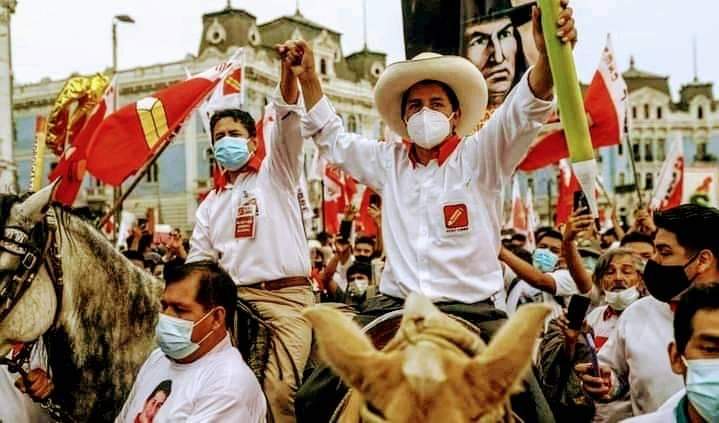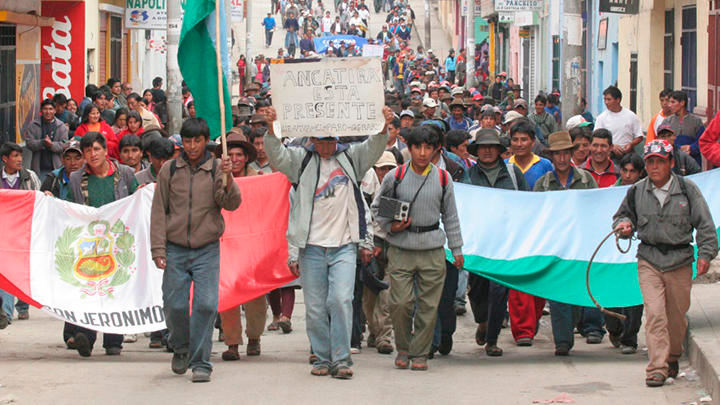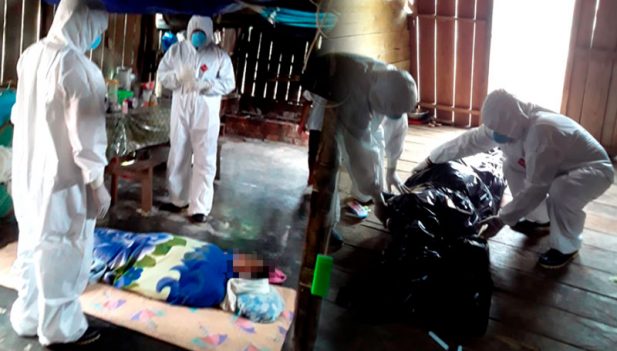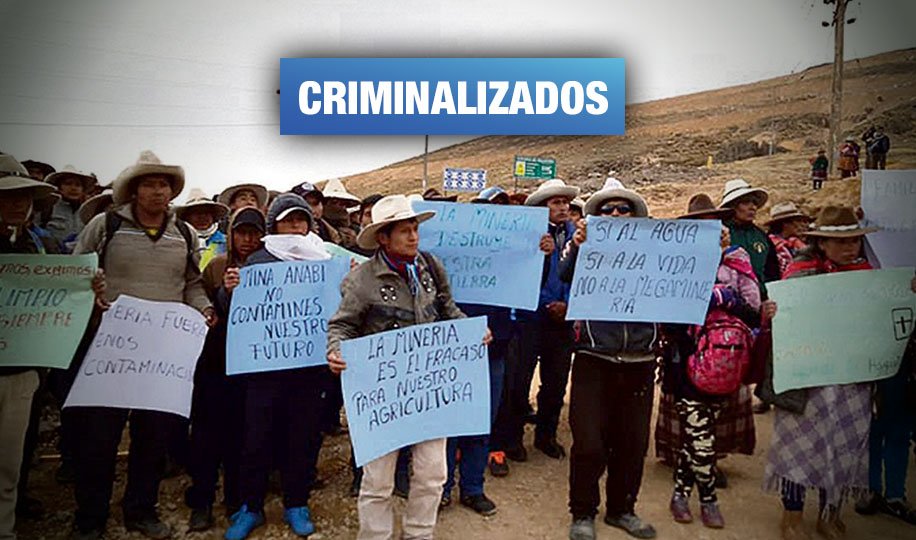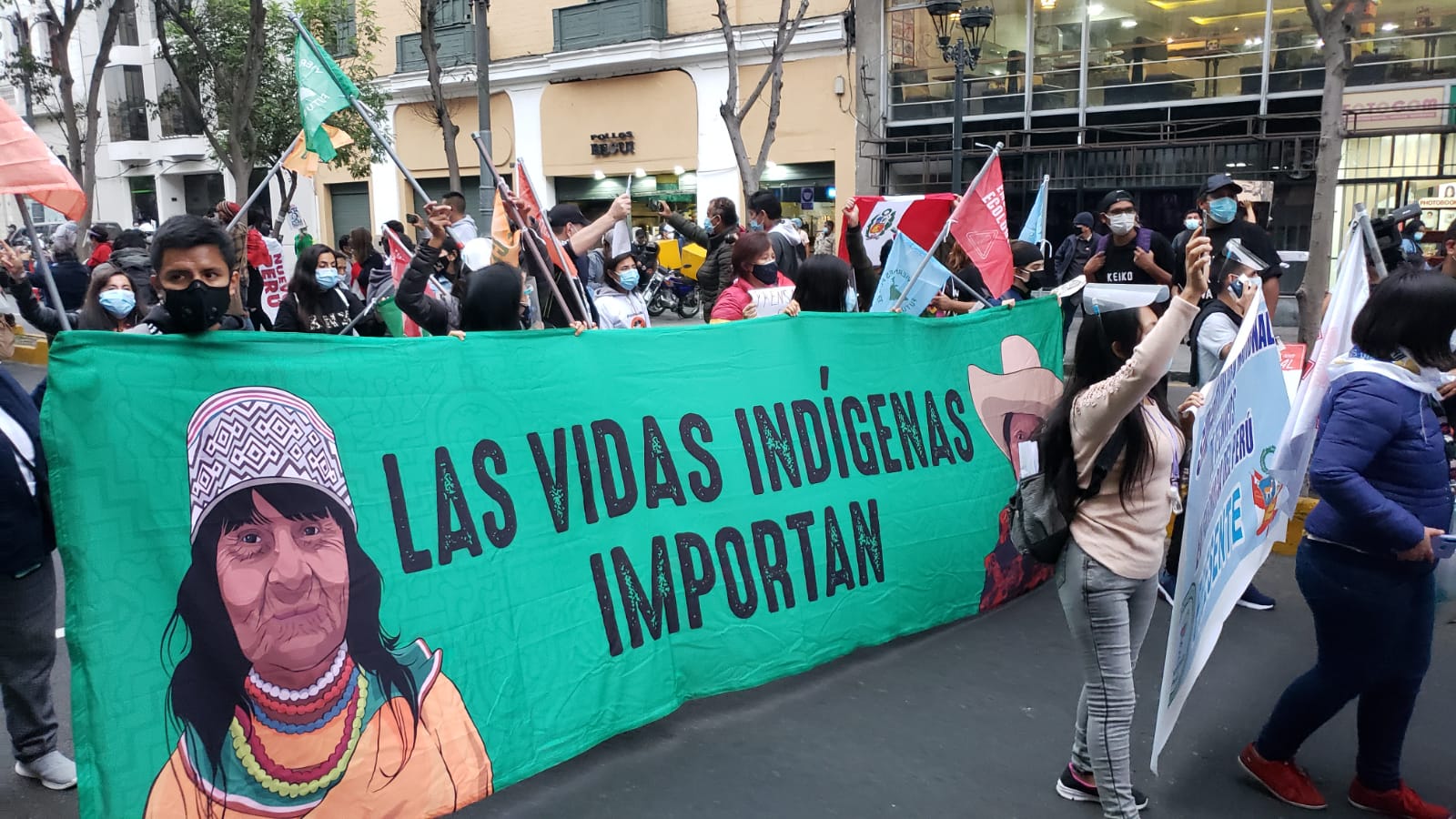
Peru: mass mobilization against neo-fujimorismo
Under the slogans “Fujimori nunca más” and “Keiko No Va,” many thousands of Peruvians filled the streets of Lima and cities across the country to repudiate the presidential candidacy of Keiko Fujimori, contender of the far-right Fuerza Popular party and daughter of imprisoned ex-dictator Alberto Fujimori. The lead contingent in the rally that filled downtown Lima’s Plaza San Martín was composed of survivors of the reign of terror during the 1992-2000 Fujimori dictatorship. Large mobilizations were also held in Arequipa, Cuzco, Huancayo, Ayacucho, Huánuco, Tacna, and other cities. Two weeks ahead of a run-off vote, despite far greater campaign and media resources, Fujimori is trailing her rival Pedro Castillo of Perú Libre, a left-populist former teacher and union leader from a rural area of northern Cajamarca region—far from the center of power in Lima. (Photo via Twitter)



